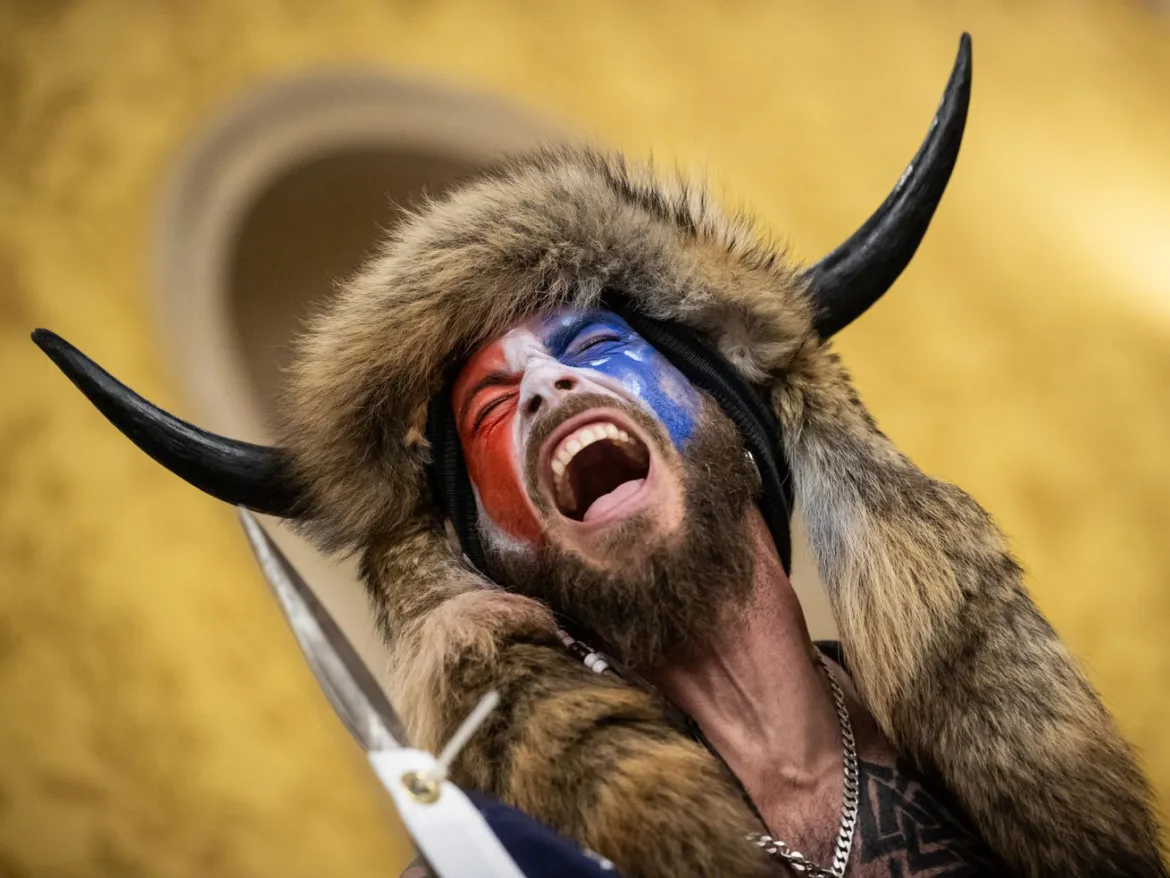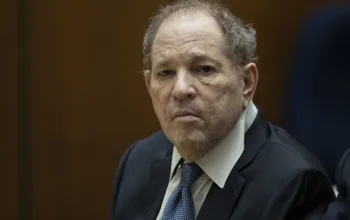Most of the justices seem to want to make it harder to prosecute January 6 rioters.
The Supreme Court spent about an hour and a half on Tuesday morning arguing over whether to make it much harder for the Justice Department to prosecute hundreds of people who joined the January 6, 2021, attack on the US Capitol.
It appears, after Tuesday’s arguments, that a majority of the justices will side with the insurrectionists — though it is far from clear how those justices will justify such an outcome.
The case, known as Fischer v. United States, involved a federal law which provides that anyone who “obstructs, influences, or impedes any official proceeding, or attempts to do so” commits a very serious federal felony and can be imprisoned for up to 20 years — although, as Solicitor General Elizabeth Prelogar pointed out during Tuesday’s argument, actual sentences against January 6 defendants convicted under this statute have been much shorter, normally ranging from a little less than one year to slightly over two years.
According to the Justice Department, more than 1,265 people have been arrested for playing some role in the attack on the Capitol. Approximately 330 of them have been charged under the obstruction statute at issue in Fischer. One of them is Donald Trump.
As a federal appeals court held in its decision in this case, the obstruction statute is pretty darn clear that it applies to an effort to obstruct any congressional proceeding intended to certify the result of a presidential election — like the proceeding that the January 6 rioters attacked. And very few of the justices seemed to agree with Jeffrey Green, the lawyer representing a January 6 defendant, who proposed one way to read the statute more narrowly.
Nevertheless, many of the justices expressed concerns that the law sweeps too broadly and that it must be narrowed to prevent people who engage in relatively benign activity from being prosecuted.
Justice Samuel Alito, for example, expressed uncharacteristic sympathy for hecklers who interrupt a Supreme Court hearing — suggesting that prosecuting them under a statute that can carry a 20-year sentence goes too far. Justice Neil Gorsuch expressed similar concerns about prosecuting someone who peacefully conducts a sit-in to delay a court hearing, or someone who pulls a fire alarm to disrupt an official proceeding.
Indeed, Tuesday’s argument had a bit of a split personality. During Green’s time at the podium, most of the justices took turns criticizing his attempts to read the ban on obstructing an official proceeding narrowly. Even Alito, who is normally the Court’s most reliable vote for any outcome preferred by the Republican Party, got in on the game — telling Green that he “may be biting off more than [he] can chew” by arguing that the statute must be read to benefit his client.
By the time Green sat down, it appeared that he could lose in a 9–0 decision.
But any optimism that the Justice Department might have had early on in the argument must have been shattered almost as soon as Prelogar began her argument. Most of the justices peppered her with skeptical questions, although the justices who seemed to want to limit the obstruction statute struggled to agree on a single legal theory that would allow them to do so.
So the bottom line is that this case is probably going to end well for many January 6 defendants, but it is far from clear how the Court will justify such an outcome.
The obstruction statute’s plain text clearly applies to January 6 defendants, but it’s unlikely that’s going to matter
Before we dig into any of the individual justices’ views on this case, it’s helpful to be familiar with the full text of the statute at issue in Fischer. It provides that:
(c) Whoever corruptly—
(1) alters, destroys, mutilates, or conceals a record, document, or other object, or attempts to do so, with the intent to impair the object’s integrity or availability for use in an official proceeding; or
(2) otherwise obstructs, influences, or impedes any official proceeding, or attempts to do so,
shall be fined under this title or imprisoned not more than 20 years, or both.
Green’s primary argument is that subsection (1)’s language referring to records or documents carries through to subsection (2). So even though subsection (2) is written broadly to bar any effort to obstruct, influence, or impede an official proceeding, it should be limited to only apply to obstructions involving documents or other forms of “evidence tampering.”
Needless to say, this is not how the English language typically works. And only two justices — Chief Justice John Roberts and Justice Brett Kavanaugh — expressed much sympathy for this reading of the law.
As Justice Sonia Sotomayor pointed out early in the argument, if there is a sign in a theatre that reads, “You will be kicked out of the theatre if you photograph or record the actors, or otherwise disrupt the performance,” no one would be surprised if an audience member is kicked out if they start yelling. It would be nonsensical to read this sign to only forbid photography or recording.
Yet, while it is hard to read the obstruction law in a way that doesn’t apply to rioters who invaded a government building for the purpose of disrupting the election certification process — forcing the entire Congress to flee for safety — many of the justices were concerned with other, hypothetical cases where this law might be used to target less troubling activity.
As Alito put it at one point, “What happened on January 6 was very, very serious,” but we need to figure out the “outer reaches” of the statute.
And so Prelogar faced a blizzard of hypothetical applications of the obstruction statutes, along with vague allegations that the government was applying the law selectively to pro-Trump rioters. Justice Clarence Thomas, for example, asked her if this law has ever been applied to a violent protest in the past (Prelogar conceded that it has not, but attributed that to the fact that the January 6 attack is unprecedented).
Meanwhile, several justices expressed concerns about people being charged with a felony for what Alito called “minor impediments,” such as if a heckler forced a proceeding to be delayed for a few minutes or if street protesters made it more difficult for members of Congress to drive to the Capitol. The concern appeared to be that people who engage in minimally disruptive political protests could be charged with a very serious felony.
There are several potential ways out of this trap. Prelogar pointed out that the statute prohibits behavior that “obstructs” a proceeding, and a minimal disruption might not rise to that level — though that theory did little to quiet the many skeptical questions she received.
One of the appellate judges who heard this case, Trump-appointed Judge Justin Walker, also suggested another way to limit the law. Walker homed in on the fact that the statute only applies to someone who “corruptly” obstructs a proceeding, and he wrote in an opinion that this word should be read to only apply to defendants who acted “with an intent to procure an unlawful benefit either for himself or for some other person.”
That interpretation, which Sotomayor and Kavanaugh both alluded to during Tuesday’s argument, would allow the January 6 insurrectionists to be prosecuted — because the whole point of that insurrection was to procure an unlawful benefit for Donald Trump: a second presidential term. But it would prevent the obstruction statute from being applied to minor heckling and the like.
Among the Court’s Republican appointees, Justice Amy Coney Barrett seemed the least sympathetic to the insurrectionists. Though she asked Prelogar whether she could “be comfortable with the breadth” of the obstruction statute, she also suggested that overaggressive prosecutions could be culled because the defendants in those cases could raise First Amendment challenges.
Still, even if the Court’s three Democrats hang together, and even if Barrett joins them, it is unclear whether they can find a fifth vote to hold the January 6 insurrectionists accountable under this particular statute.
The Court’s sympathy for political protesters appears to be quite selective
Much of the skepticism Prelogar faced seemed to be rooted in some of the justices’ fears that ordinary political protests may be squelched by an overbroad reading of the obstruction statute. So it is worth noting another decision that the Court handed down just one day before the argument in Fischer.
In Mckesson v. Doe, the right-wing United States Court of Appeals for the Fifth Circuit effectively eliminated the right to organize a political protest — holding that protest leaders could face ruinous financial liability if a single protest attendee commits an illegal act. This decision is completely at odds with a long line of the Supreme Court’s First Amendment precedents.
And yet, on Monday, the Court announced that it would not hear the Mckesson case, leaving the Fifth Circuit’s decision in place.
It is still possible that the Supreme Court will correct the Fifth Circuit’s error in Mckesson at some later date. But it’s notable that the Court felt no urgency to do so in that case, while it spent the Fischer argument thinking about how to shut down some hypothetical future case where the government may not show adequate respect for First Amendment rights.
The Mckesson case, moreover, involved a Black Lives Matter protest, while the Fischer case involved a pro-Trump insurrection.
If nothing else, this is a terrible look for the Supreme Court. And it suggests that many of the justices’ concerns about free speech depend on whether they agree with the political views of the speaker.



